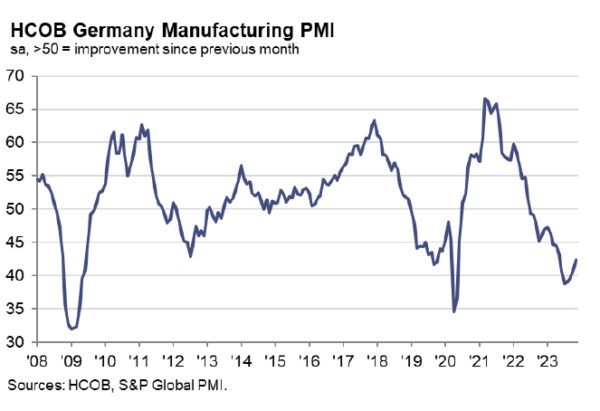Germany’s November PMI data indicates a modest improvement in its economic situation, albeit still within recessionary bounds. Manufacturing PMI rose from 40.8 to 42.3, marking a six-month high, and Services PMI increased from 48.2 to 48.7. Composite PMI, climbed from 45.9 to a four-month high of 47.1.
Cyrus de la Rubia, Chief Economist at Hamburg Commercial Bank, noted a cautious optimism about the German economy. He observed, “Despite remaining in recession territory, the rate of slowdown has eased noticeably.”
While, the PMI data aligns with the perspective that Germany entered a recession in the third quarter of this year, the recession’s depth might be less severe than initially anticipated. According to de la Rubia’s nowcasting model, GDP is expected to see -0.7% decline in Q4, an improvement from previous forecasts of -0.9% decline.
Despite these signs of economic easing, inflation remains a significant challenge. De la Rubia pointed out the persistence of inflation, especially in the service sector where input prices surged in November, largely due to increasing wages.
This inflationary pressure is partly transferred to consumers as service sector output prices continue to rise at high rates. The likelihood of sustained inflation is further supported by recent labor market trends, including increased strike activities and significant wage agreements.

